
The first M1 Macs have been out in the wild for nearly three full months, and the fear is setting in at Intel. The company this week shared a detailed slideshow of benchmark results with Tom’s Hardware (via Six Colors), aiming to show that there are multiple ways in which it still has a leg up on Apple Silicon…depending on how you look at things.
One of Intel’s focuses is on what it refers to as “productivity.” The company compares its 11th generation “Tiger Lake” processors against Apple’s M1 for things like web browsing and using Microsoft Office. Intel says:
Comparing Microsoft Office 365, running native on both Intel and Apple processors: The 11th Gen system performs some functions like PDF export up to 2.3x faster (vs Apple M1)
Comparing the most popular web browser (Chrome), running native versions on both Intel and Apple processors: The 11th Generation system is more than 30% faster overall and nearly 3x faster in the online photo enhancement subtest (vs Apple M1)
Other benchmarks from Intel also focus on things like content creation, using software from Adobe and Topaz Labs, as well as gaming.
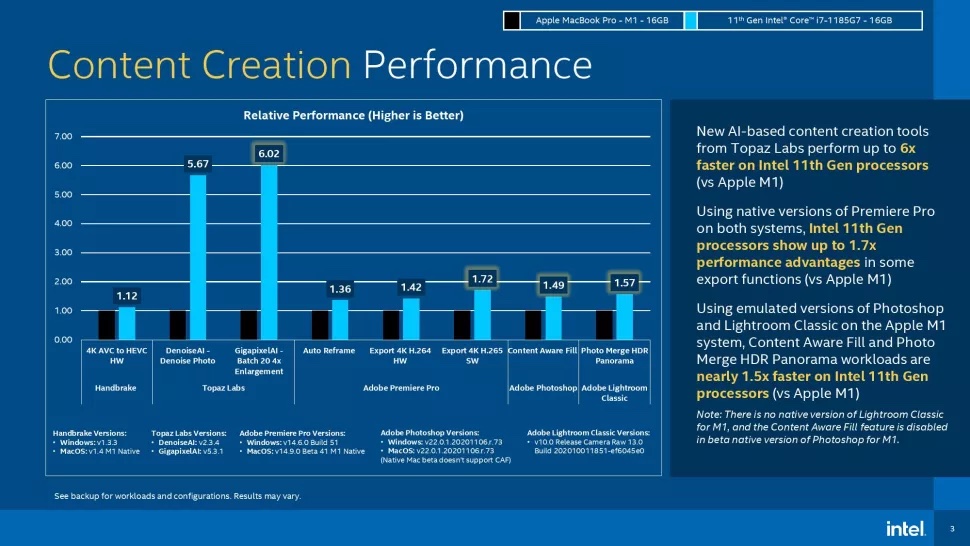
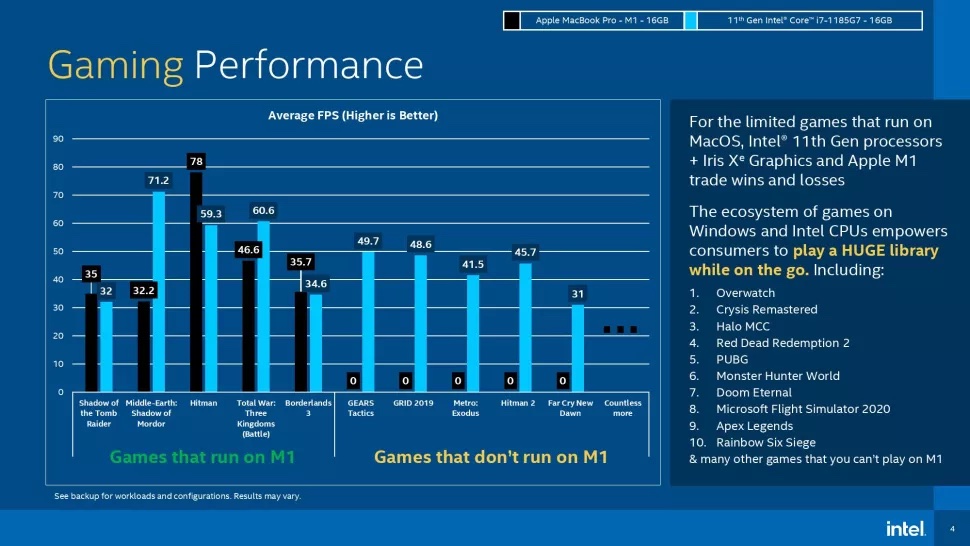
Intel also compared the M1 against Intel Evo, which is “its second-generation upgrade to Project Athena to make the best portable devices.”
There are some bizarre results from testing between the M1 and Evo, with Intel claiming that the M1 in the MacBook Pro failed at things such as using Zoom and PowerPoint. Tom’s Hardware explains:
Intel claims that the M1 in the MacBook Pro it tested failed eight out of 25 tests it uses, including “Switch to Calendar” in Outlook, “start video conference” in Zoom, and “Select picture Menu” in PowerPoint. Intel’s workloads don’t explain how these are run, but they’re also simple tasks that work quite well on just about any modern processor, so they’re odd choices. (I had plenty of Zoom conferences while testing the MacBook Pro with no issue.)
There are multiple things to keep in mind with this testing. First and foremost, these tests were performed by Intel, and therefore should be treated with skepticism; of course the company is going to pick and choose the specific tasks where Intel chips might still perform better than Apple’s M1.
For instance, Tom’s Hardware points out some suspicious choices Intel made when testing battery life:
In battery life, Intel switched to an Intel Core i7-1165G7 notebook, the Acer Swift 5, rather than sticking with the Core i7-1185G7 in the whitebook it used for performance testing. It also tested a MacBook Air. They ran Netflix streams and tabs and found the MacBook Air came ahead with a six-minute difference.
Intel didn’t list battery life for the MacBook Pro. In our tests, that beat Intel PCs by hours.
Intel’s timing with releasing this counterargument to Apple Silicon is also intriguing. Jason Snell at Six Colors points out at the M1 is a low-end chip for low-end system, and Intel “only has a small window” left for being able to find favorable comparisons:
Inconsistent test platforms, shifting arguments, omitted data, and the not-so-faint whiff of desperation. Today’s M1 processor is a low-end chip for low-end systems, so Intel only has a small window to compare itself favorably to these systems before higher-end Apple silicon Macs ship and make its job that much harder.
If you’re interested, you can find the full slideshow presentation from Intel over at Tom’s Hardware.
FTC: We use income earning auto affiliate links. More.

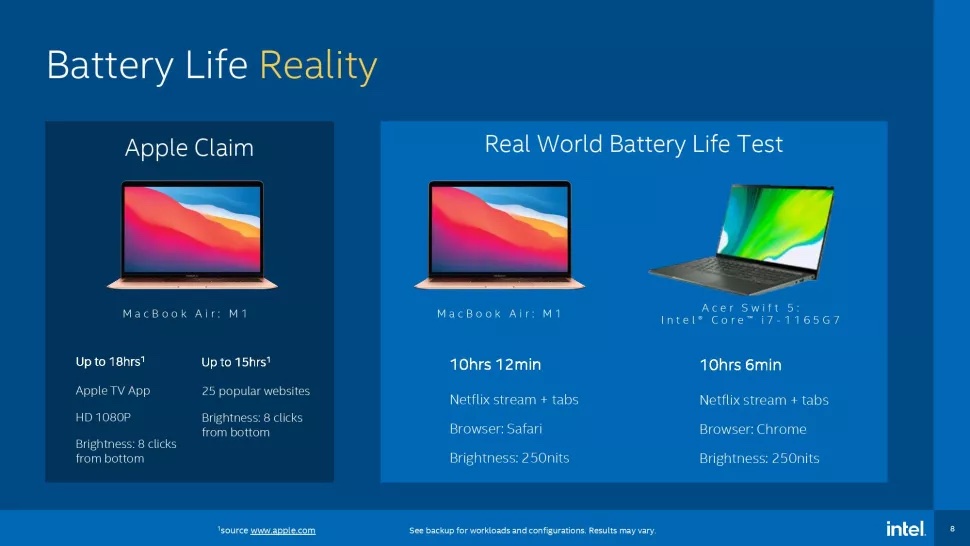
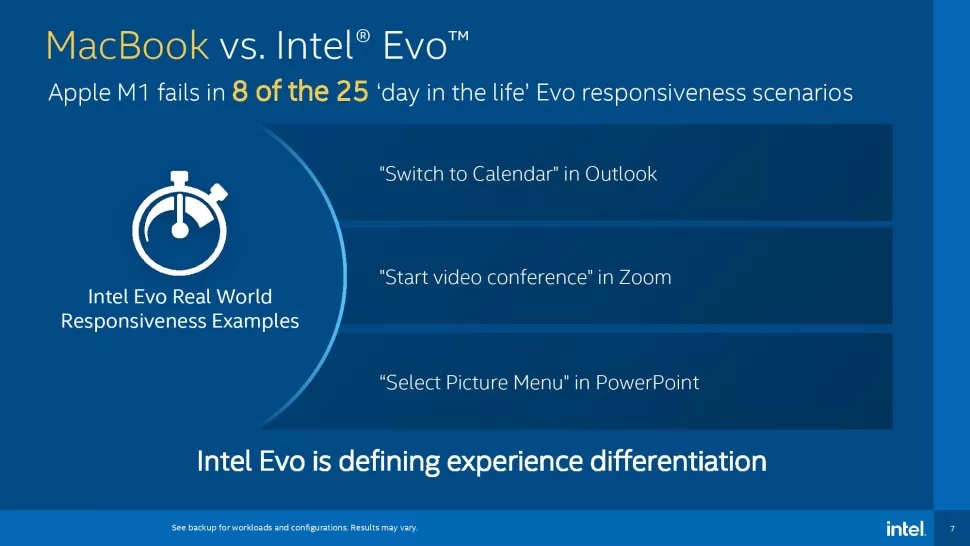
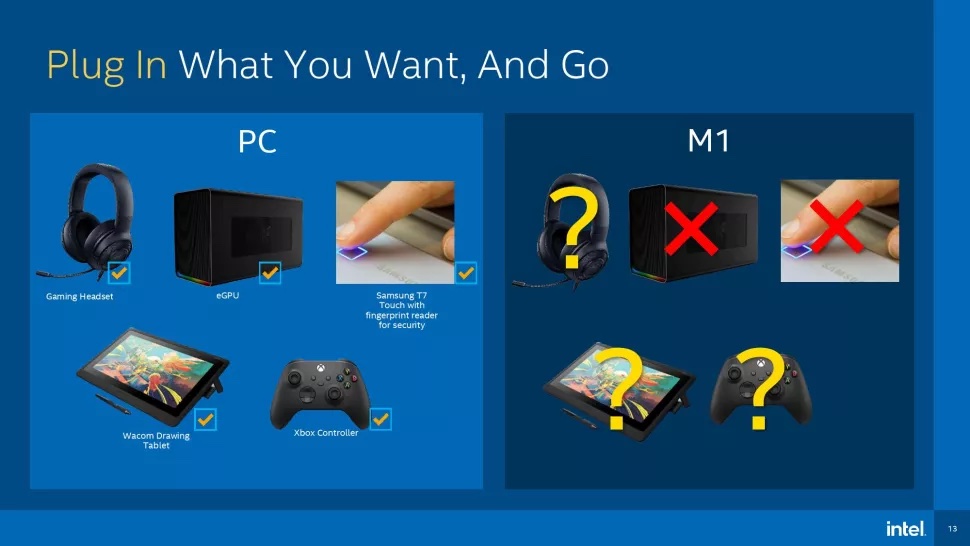

Comments